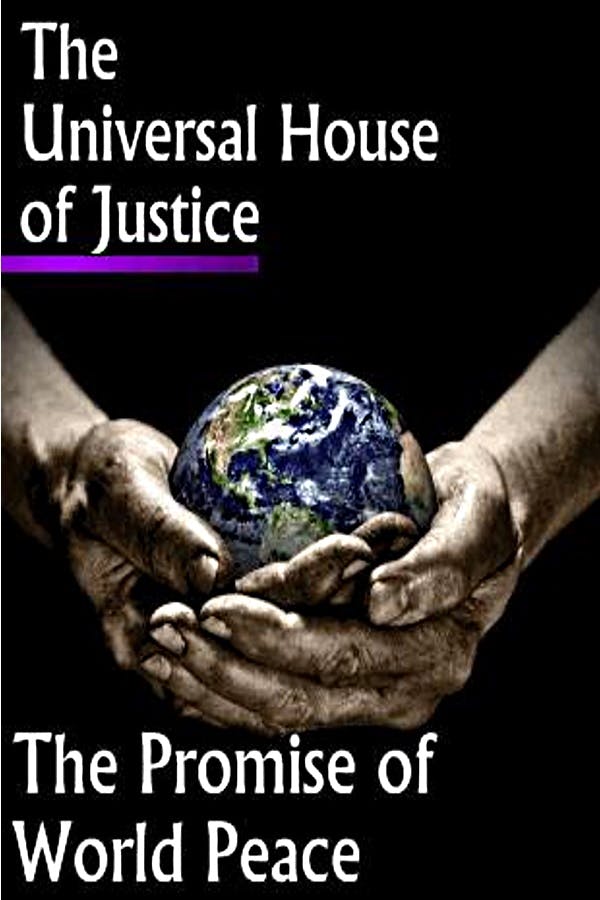The Bahá’í teachings present a profound vision for the globe: the realization of world peace. This aspiration is not just a lofty ideal but a collective obligation that calls for proactive engagement and unwavering commitment. In exploring “The Promise of World Peace,” we encounter both a compelling invitation and a pivotal challenge that demands our earnest contemplation. What if, as stewards of the Earth and its inhabitants, we were to ask ourselves: Are we truly prepared to engage in the arduous yet rewarding journey towards universal harmony?
Bahá’u’lláh, the founder of the Bahá’í Faith, articulated a paradigm that transcends mere tolerance among nations and cultures. He envisaged a world imbued with unity, where prejudices dissolve in the face of universal brotherhood. However, the complexity of our modern existence often obscures this vision. The myriad clashes—be they ideological, political, or cultural—test the very fabric of human interconnection. Addressing these issues requires not only awareness but critical action.
To embark on this transformative journey, one must first cultivate a profound understanding of the underlying principles of Bahá’í teachings. The tenets encapsulated in the writings of Bahá’u’lláh emphasize the importance of justice, love, and compassion. Each adherent is called upon to embody these virtues, fostering a culture rooted in mutual respect and understanding. This is essential because the pathway to peace necessitates the dismantling of barriers that separate individuals from diverse backgrounds.
The concept of justice, as envisaged in these teachings, extends beyond retributive measures to encompass restorative justice, where healing takes precedence over punishment. This progressive outlook implores us to engage in dialogues that prioritize reconciliation rather than division. Consider the challenge posed: How might we, as individuals and communities, actively foster an environment where dialogue flourishes?
Moreover, Bahá’í teachings underscore the integral role of education in the quest for global peace. Education is not merely the acquisition of knowledge; it is a transformative journey that empowers individuals to think critically and engage constructively with their world. As Bahá’ís, there exists a call to action to promote universal education, ensuring equitable access for all—a task that requires ingenuity and resolve. By addressing disparities in education, we not only uplift marginalized communities but also cultivate a future generation equipped to advocate for peace.
Simultaneously, the Bahá’í community is encouraged to embody the spirit of service. The act of selfless service is not an isolated endeavor; it is intimately connected to the broader fabric of society. Engaging in service projects that address community-specific needs fosters cooperation and solidarity among diverse groups. Furthermore, how do we challenge ourselves to expand our notions of service beyond our immediate circles? The answer lies in recognizing that true service is inherently global, addressing issues such as poverty, environmental degradation, and social injustice.
In contending with the realities of our world, the Bahá’í writings remind us that the pursuit of world peace necessitates a fundamental shift in perspective. Rather than viewing peace as an abstract concept, it is imperative to understand it as a dynamic, living practice—an ongoing engagement requiring constant nurture and cultivation. This perspective incites a contemplative inquiry: How do we apply the principles of Bahá’í teachings to our daily interactions, thereby weaving a tapestry of peace in our immediate environments?
Furthermore, the role of spirituality in promoting peace cannot be overstated. The Bahá’í Faith emphasizes that individual spiritual growth translates into communal transformation. Engaging in practices that nourish spiritual well-being—such as meditation, prayer, and reflection—shapes individuals into catalysts for peace. Thus, we may pose the question: How can a deeper spiritual connection enable us to approach conflicts with empathy and understanding, rather than hostility?
Another crucial aspect tied to the realization of global peace relates to the concept of international governance. The Bahá’í teachings advocate for a system of global cooperation that supersedes nationalistic tendencies. This vision extends to concepts of a federated world government, whereby international disputes are resolved through dialogue rather than warfare. Individuals are called upon to educate themselves about global issues and participate in movements advocating for this essential framework. How might we, as advocates for this collective governance, hold ourselves accountable in the discourse surrounding global justice?
The Bahá’í community also stresses the importance of engaging proactively with local and global initiatives aimed at peacebuilding. Through collaboration with various organizations—both secular and spiritual—individuals can contribute uniquely to the collective mission. This requires a sincere commitment to actively participating in dialogues, workshops, and peace initiatives. The challenge here is multifaceted: What steps can each of us take to ensure our voices are part of this critical conversation?
In conclusion, the journey towards world peace, as articulated through Bahá’í teachings, is not a solitary path. It is a communal undertaking that encompasses education, service, justice, spirituality, and collaborative governance. The call to action is resounding: it compels each individual to reflect, engage, and transform. As we ponder our role within this crucial endeavor, may we find the courage to rise to the challenge and foster a vibrant community dedicated to the promise of world peace. In reaffirming our commitment to harmonious co-existence, we can galvanize our collective potential and strive toward a future where peace is not merely a dream, but a tangible reality for all humanity.
